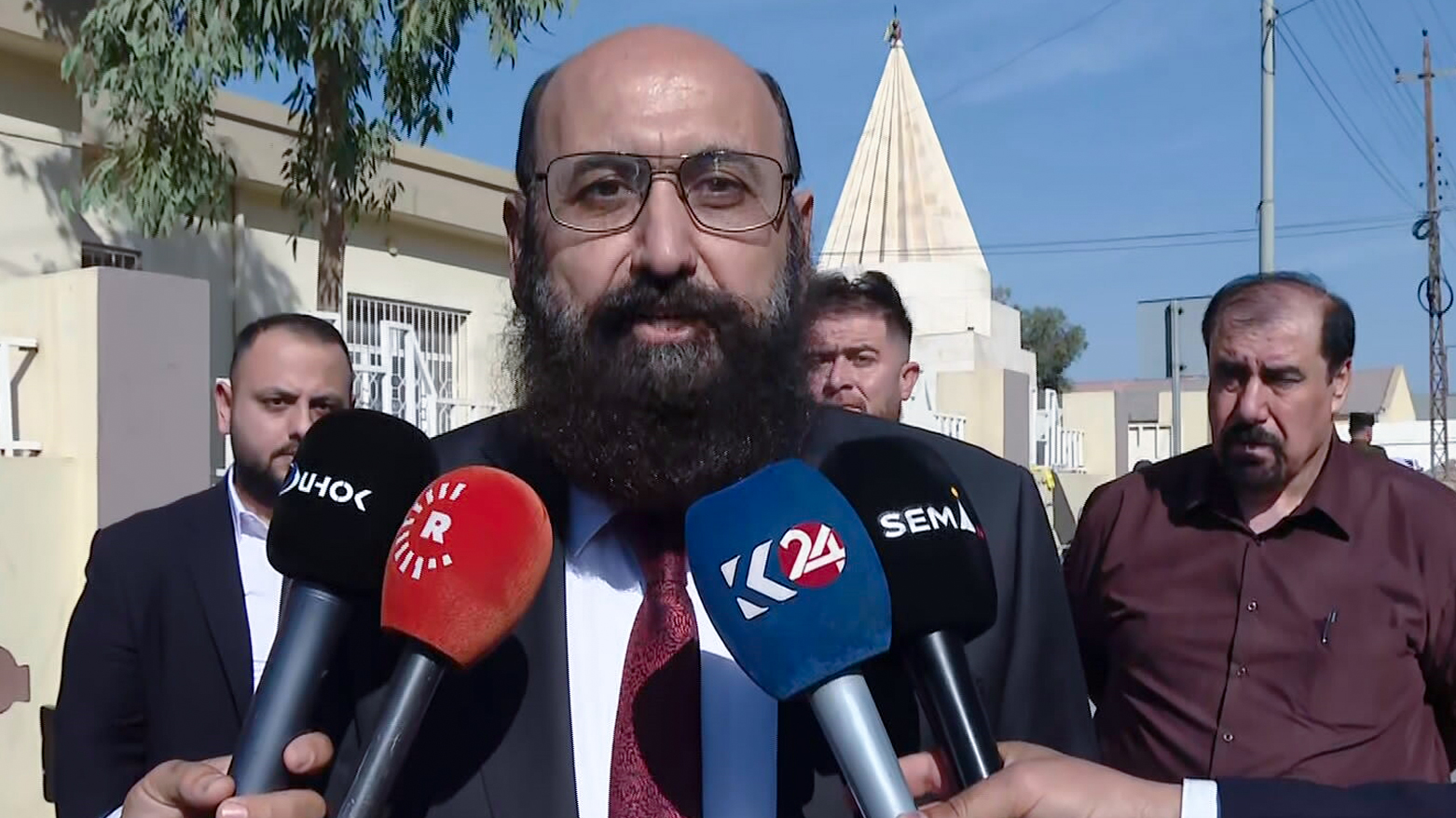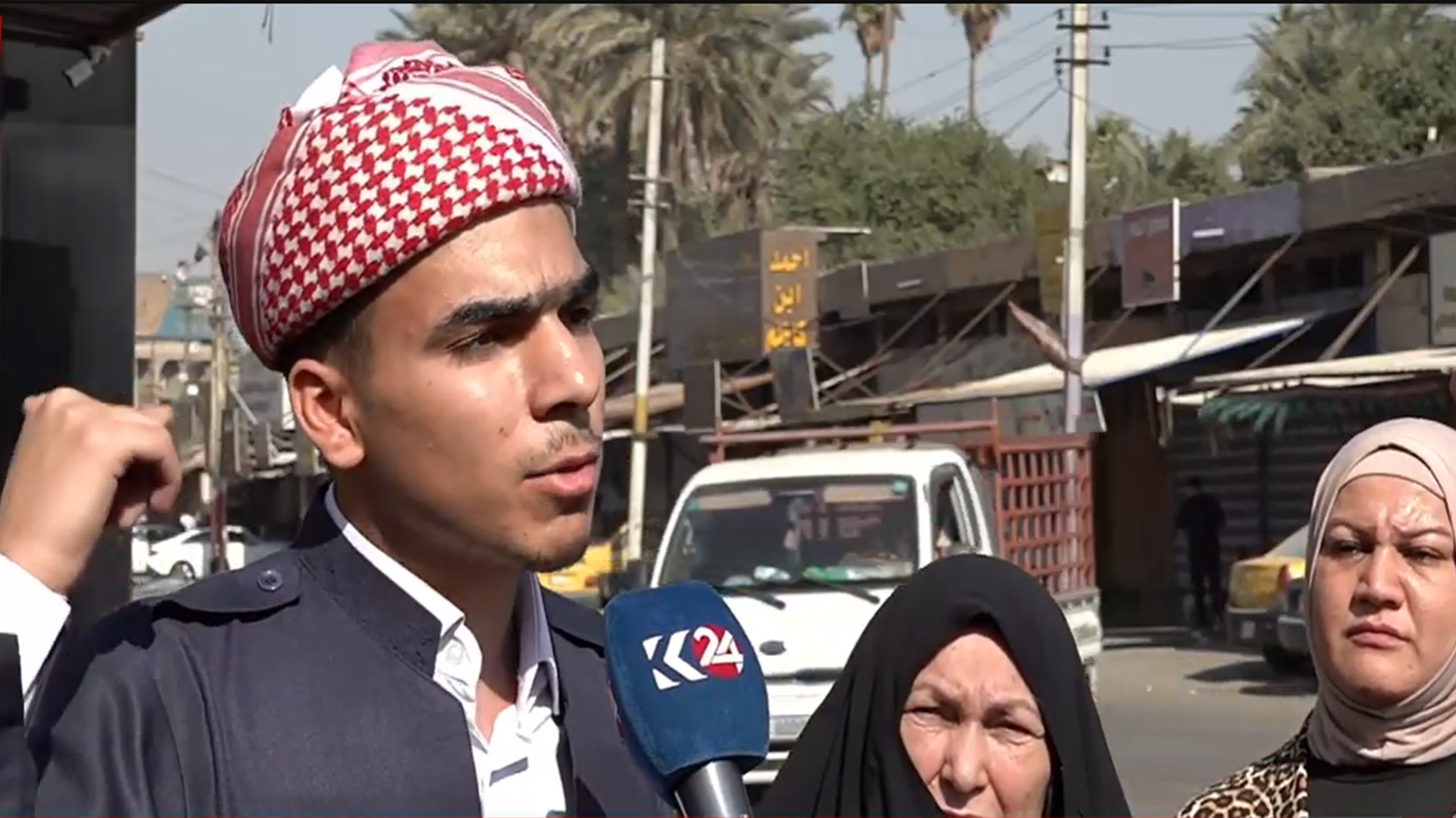Ezidi Prince Urges Strong Election Participation, Says Genocide Against His Community Still Continues
Mir Hazim Tahsin Beg calls on Ezidis to vote for defenders of their rights as Faili Kurds in Baghdad proudly reaffirm their Kurdish identity at the polls.

ERBIL (Kurdistan24) — The spiritual leader of the Ezidi community, Mir Hazim Tahsin Beg, on Tuesday said that the genocide against the Ezidi people is still ongoing, urging Ezidis to actively participate in Iraq’s parliamentary elections to ensure the protection of their rights and the dignified return of displaced families to Shingal (Sinjar).
Speaking to reporters in Shekhan district after casting his vote, Mir Hazim described the day as “historic and significant,” noting that thousands of Ezidis continue to live in camps under tents years after ISIS atrocities.
“The genocide against our people has not ended. Ezidis remain displaced and deprived of basic services. Therefore, it is essential to vote for candidates who genuinely fight to restore our rights, guarantee citizens’ safety, and deliver services to Shingal—so our people can return home with pride,” he said.
The Ezidi Prince also urged residents of Nineveh’s plains to engage meaningfully in the elections to reclaim their civic rights.
He echoed the call of President Masoud Barzani, telling voters: “Go to the polling stations today, and vote for those you trust—those who defend the rights of Ezidis, and protect our land and nation.”
In Nineveh Province, which holds 34 parliamentary seats, the Ezidi, Christian, and Shabak minorities each have one quota seat.
According to Iraq’s Independent High Electoral Commission (IHEC), the province has 1,969,179 eligible voters across 873 polling centers and 3,861 voting stations.
Meanwhile, Faili Kurds across Baghdad and other Iraqi cities turned out in large numbers, emphasizing their pride in Kurdish identity and commitment to voting for Kurdish candidates.
A young Faili Kurd in Baghdad’s Kifah district, wearing traditional Kurdish attire, told Kurdistan24 reporter Shvan Jabari, “We came here to vote for a Faili Kurdish candidate who can represent us in the Iraqi Parliament and defend our rights.”
He added that some were being pressured to vote for other candidates but refused to compromise their identity: “We are Kurds, and we will vote for Kurds.”

A Faili Kurdish woman at the same polling station said successive Iraqi governments had discriminated against the Faili community.
“They displaced us, confiscated our property, and executed our loved ones,” she said. “But we will never abandon our Kurdish identity. We are voting for the Kurdistan list and Kurdish candidates.”
Another Faili voter from Fadhli district in Baghdad appealed to all Faili Kurds to support Kurdish candidates, saying, “We have suffered greatly—only because we are Faili and Kurdish. Our representatives must stand up for our rights in parliament.”
Kurdistan24’s correspondent in Baghdad reported that tight security measures were in place around polling stations, particularly in Sadr City, where many main streets were closed.
However, this did not affect the strong turnout of Faili Kurdish voters.
Voting for Iraq’s sixth parliamentary term began at 7:00 a.m. on Tuesday and will continue until 6:00 p.m. Across Iraq and the Kurdistan Region, more than 20 million citizens are eligible to elect 329 parliamentary members, including nine quota seats reserved for minority communities.
These elections, closely monitored by domestic and international observers, mark another crucial step in Iraq’s effort to consolidate democracy amid calls for greater inclusion, minority representation, and political stability.